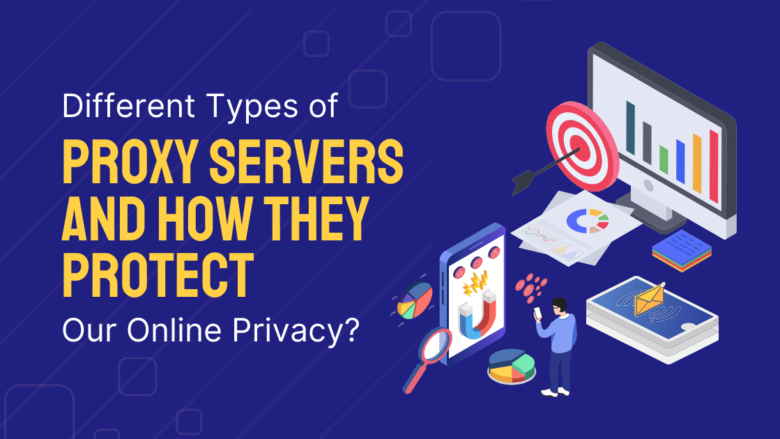A proxy server is a program that acts as a middleman between the user making a request and the server supplying the requested information. The server is the intermediary between the user and the online pages they seek to view. The proxy server permits us to view any website with a different IP address. It gathers and distributes data about user requests. The most crucial thing to remember about proxy servers is that they do not encrypt traffic.
A proxy can range from desktop software to a data center device protecting traffic. There are numerous proxy servers available today.
Transparent Proxy
Client-side setup is not required for transparent proxies. They are configured throughout the entire network and are unnoticeable to individual clients. Your traffic could be routed through a transparent proxy without realizing it. It does not modify your information, unlike traditional proxies, so the request to the target server appears to have come directly from you.
Transparent proxies are an inconspicuous technique to improve users’ browsing experience by adding features and functionality.
- By routing and adjusting requests as they come in, businesses have a better understanding of how their customers engage with their services.
- Clients can draw in web benefits promptly since their connections are communicated through the proxy gradually and easily, passing on the configuration to the ISP.
Anonymous Proxy
Anonymous proxies allow you to surf the web without revealing your IP address. Anonymous proxies keep your IP address and location private from your target websites. Proxy servers work as a privacy shield, making your internet browsing difficult to track.
Anonymous proxies act as a middleman between you and the web, taking your request and routing it through an intermediate server before returning the results. The information you submit or receive is sent from a different server than your real IP address. Your information is kept private, and websites treat you as a regular visitor. Web scraping, business automation, and other tasks requiring several IP addresses require anonymous proxies. You can set up an anonymous proxy on your device using proxy settings for chrome.
Benefits of Anonymous Proxy
- Circumvent geo-blocking and censorship.
- Avoid targeted marketing and advertising online.
- Protect your identity and improve your security.
- Safeguard your search history.
High Anonymity Proxy
Both high anonymity proxies and highly anonymous proxies are interchangeable phrases. The proxy is also referred to as an elite proxy, and its tasks are similar to those of regular proxies, but it gives more secrecy. An anonymous proxy hides the IP address; however, a high anonymity proxy does not.
Your identity is camouflaged when you utilize a high anonymity proxy, making it perhaps the best proxy for cutting-edge web security and safety. One benefit of utilizing such a proxy is that you can just sidestep the proxy check and get sufficiently close to the content that isn’t accessible in your area.
You risk having your web page banned if you use basic anonymous proxies. These proxies can be easily identified and banned. Because high anonymity proxies avoid this issue, they may be the best option for many people.
Benefits of High Anonymity Proxy:
- Experts feel that a high anonymity proxy provides the best user privacy and security by concealing and securing personal information.
- When accessing or downloading a geo-blocked application, the high anonymity proxy is recommended because the foreign server will not be able to tell whether the user is not from the area.
- This proxy is the best approach to keep users’ data and computers safe when connecting to the internet.
- Proxy servers reduce the number of cybercrimes like identity theft in general.
Distorting Proxy
A distorting proxy is a proxy server that modifies a user’s HTTP (HyperText Transfer Protocol) headers to hide or change the user’s original IP address, protecting the user’s personal information when connected to the internet. Users can use a distorting proxy to disguise themselves as a server, but there is a risk of being identified, and others will know they are using a server. All kinds of internet services can employ distorted proxy servers to speed up data transfers while maintaining customer anonymity.
Benefits of Distorting Proxy:
- When utilizing a distorting proxy, users can feel safe browsing the internet and visiting different websites because their identity and online actions are hidden.
- Users can also use the distorting proxy to bypass websites that are prohibited in their nation, as well as offices, schools, and other places where certain websites are blocked.
- While accessing the internet, users’ computers can also be protected from malware.
Conclusion
As a client or a service provider, proxy servers can assist with many sorts of anonymity. It aids in the protection of various users’ information as well as the internal network’s security. There are several sorts of proxies accessible, each of which employs a distinct routing protocol and serves different purposes with varying levels of anonymity.










FIND US ON SOCIALS